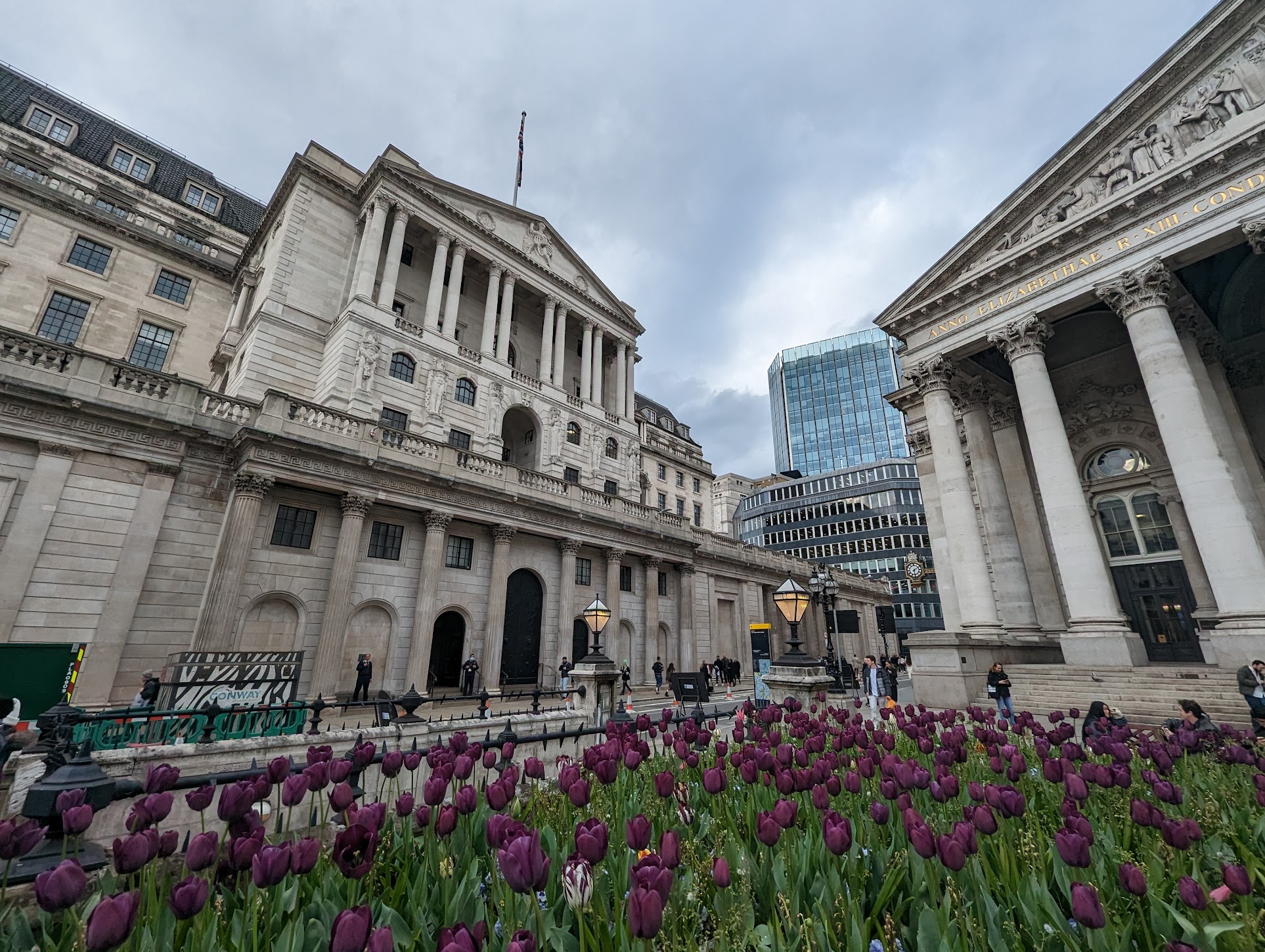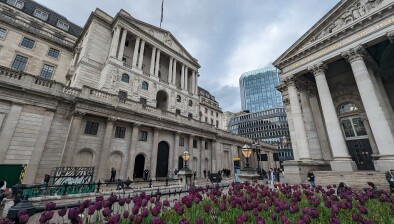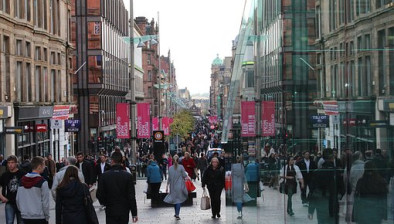Hopes for further rate cuts fade as UK inflation hits 3.8%

The Bank of England building (credit: George Iordanov-Nalbantov)
UK inflation unexpectedly accelerated to an 18-month high of 3.8% in July, reducing the likelihood of further interest rate cuts from the Bank of England.
Wednesday’s figure from the Office for National Statistics (ONS) surpassed economists’ forecasts of 3.7% and was an increase from the 3.6% recorded in June. The rise was driven by higher transport costs, including air fares and motor fuel. Food and non-alcoholic beverage prices continued their upward trend, climbing 4.9% compared to the same period last year.
In a sign of persistent underlying price pressures, services inflation – a key indicator for the Bank of England – rose to 5% from 4.7%. This will be a cause for concern for policymakers on the Monetary Policy Committee (MPC), who recently delivered a narrow decision to cut the UK’s key interest rate by a quarter point to 4%.
The Bank is forecasting that inflation will peak at 4% in September, double its 2% target. While the MPC has cut rates five times since last summer, economists now expect the pace of reductions to slow significantly.
The latest figures highlight how inflation is proving more stubborn in the UK compared to its international peers. Eurozone inflation was estimated at 2% for July, while the United States reported annual inflation of 2.7% for the month.
Janet Mui, head of market analysis at RBC Brewin Dolphin, said: “UK inflation rose to an 18-month high in July, putting the Bank of England in a tougher spot and reinforcing the squeeze felt by households. There is no doubt that inflation remains well above target and sticky, which reduces the chance of another rate cut in the foreseeable future.
“The acceleration in food prices and hospitality adds to evidence of firms passing on higher National Insurance and the minimum wage increase to consumers. There were some temporary factors at play too, with airfares rising the most on a monthly basis since 2001 due to the timing of the school holidays.
“If we exclude those volatile components, core services inflation has eased slightly. Unless we see a sharp deterioration in economic activity, the bank is likely to keep rates on hold until the end of the year.”
Luke Bartholomew, deputy chief economist, at Aberdeen said: “Inflation was always likely to rise today, but this report is definitely on the hotter side. In particular, services inflation, which the Bank of England watches very closely as a measure of underlying inflation pressure, popping higher will be a source of concern among policymakers.
“With inflation likely to rise further in coming months and wage growth gradually slowing, it is quite possible we move back to a period of sustained negative wage growth. All of which will keep the economy feeling more “stagflationary” than comfortable. The outlook for interest rates is therefore looking more uncertain. We continue to expect another cut in November, but the risk of a more sustained pause in the cutting cycle has increased.”
Kevin Brown, savings expert at Scottish Friendly, added: “Borrowers at least have something to cling to. The MPC’s recent rate cut has eased repayments for those on tracker mortgages, and lenders are cutting deals aggressively in a scramble for business. That has offered a glimmer of relief for homeowners.
“But for savers, the only way to describe today’s reading is ‘grim’. Falling savings rates combined with high inflation mean cash is steadily being eroded. Savers may want to look to secure the best-paying accounts or consider long-term investments that have the potential to deliver stronger real returns.”






